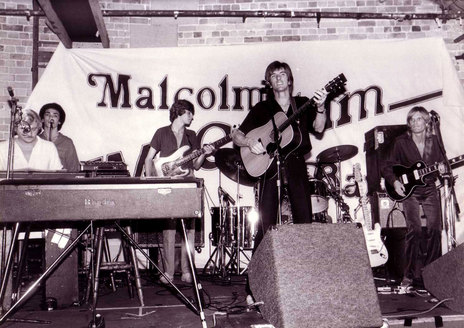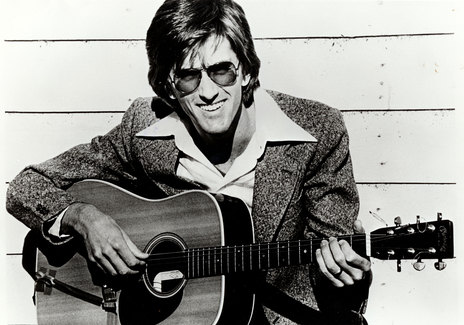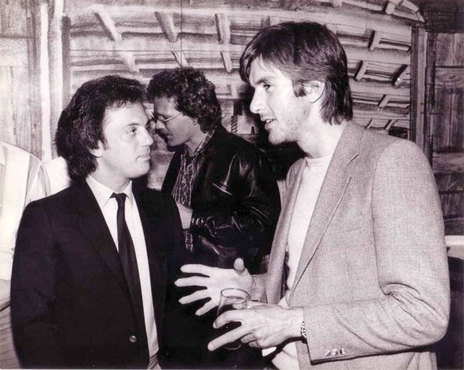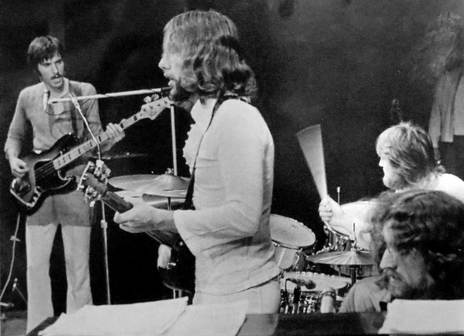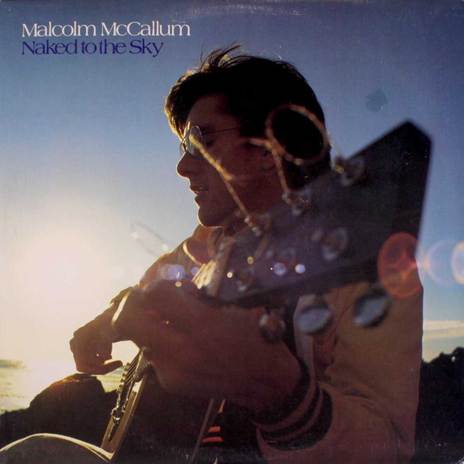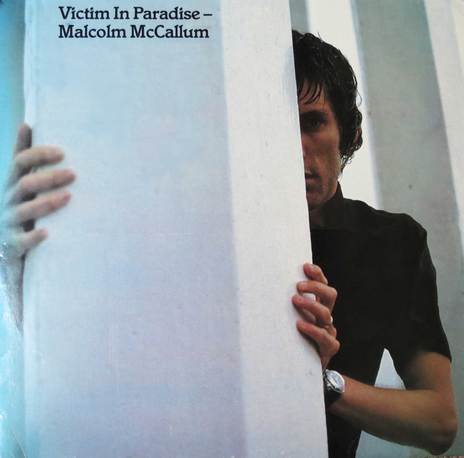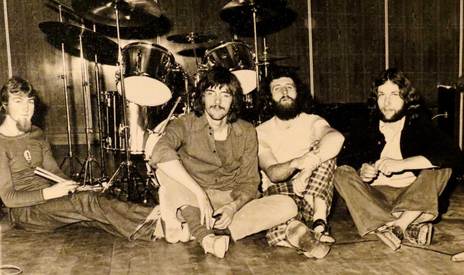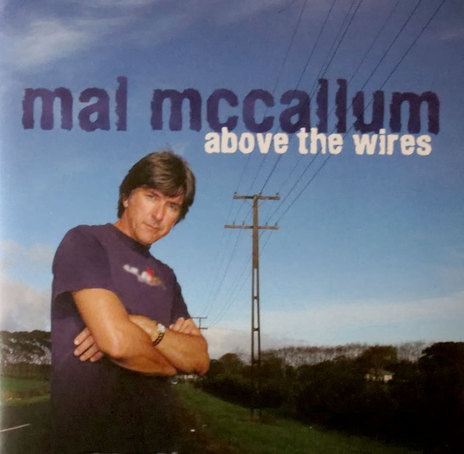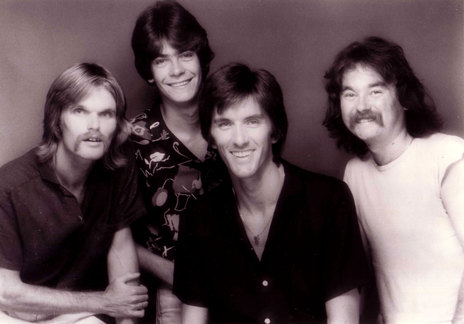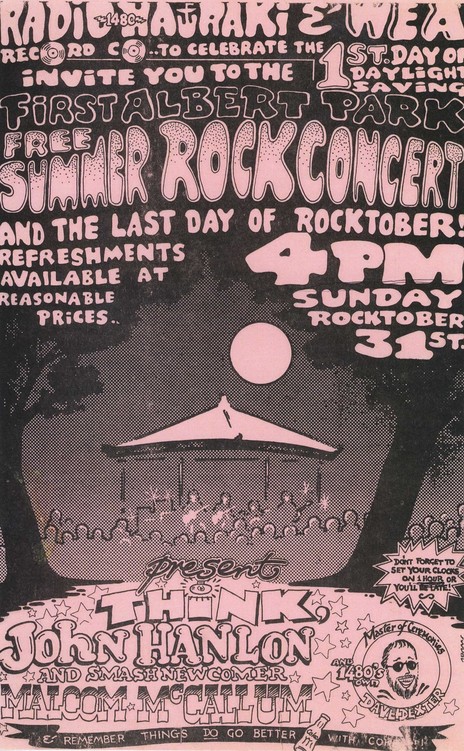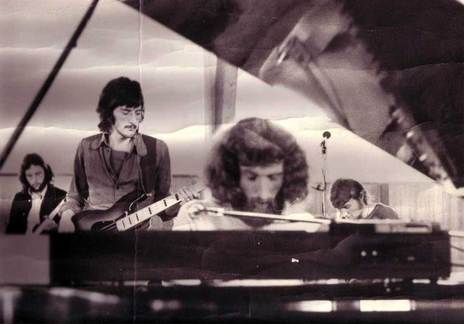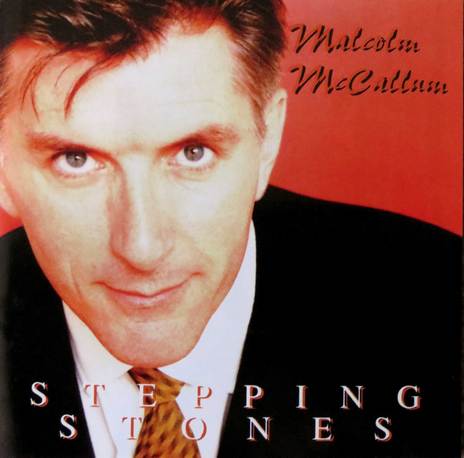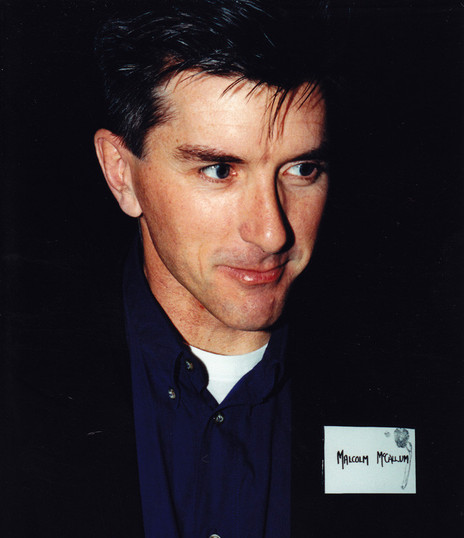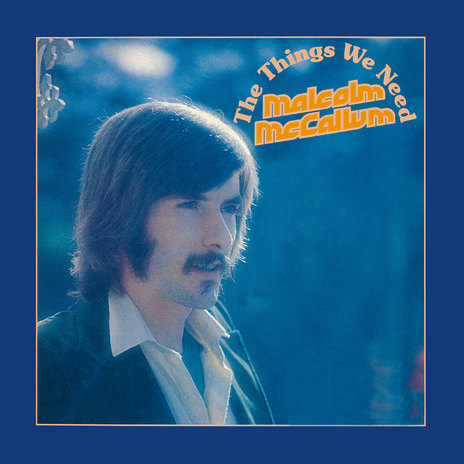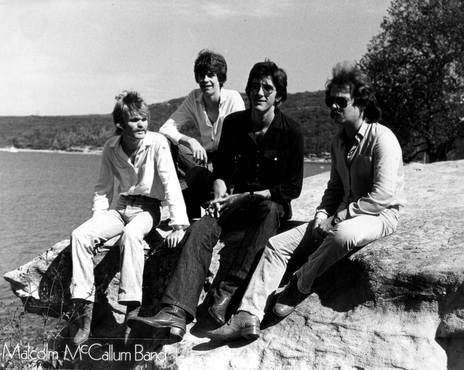Years later it emerged that when a record company employee had ended an alleged affair with the station’s programmer, he had avenged the dumping by removing all of the company’s new releases from the station playlist.
Until that point, it had seemed New Zealand singer-songwriter Malcolm McCallum was living a charmed life. With one album under his belt at home, pop idol Mark Williams had cut one of his songs and CBS A&R head Alan Galbraith had summoned him to Australia to record there.
He went on to release two albums in Australia and became an in-demand session singer in Sydney before taking his family back to New Zealand in 1991. Along the way he’d written the potential New Zealand sports anthem, ‘K1W1’, which, as a duet with Mark Williams was chartbound in 1988 when it sold out and EMI decided not to reprint it.
Two independent albums have been released in the last 15 years and guitarist-keyboardist McCallum has kept himself busy as a solo artist and in corporate bands whose members include such New Zealand music luminaries as Suzanne Lynch, Eddie Rayner and Tina Cross. He has never stopped writing songs and is planning to record a new album soon.
Born in Palmerston North on December 15, 1951, Malcolm McCallum was turned off playing music as a youngster by a piano teacher who would smack his fingers with a ruler when he made a mistake. After spending his intermediate school years at boarding school in Melbourne, he returned to Palmerston North and passed the piano over for rugby. He did, however, earn a reputation as the boy who knew the second verse during group sing-alongs at high school.
When he left school, he worked on a farm out the back of Gore where he found a five-stringed guitar in the farmhouse and began messing around on it. He returned to Palmerston North to undertake an English degree at Massey University and started playing guitar in the city’s folk clubs, writing his own poems and songs and eventually playing in summertime bands.
After two years at Massey, McCallum continued his studies for a year at Victoria University in Wellington, where he encountered bands like Mammal and Tamburlaine. Inspired, he would appear with knocking knees in the capital’s folk clubs, when he wasn’t riding his Vespa to Palmerston North for the weekend.
Back in his home town with his degree finished and a brief flirtation with an acting course ended, McCallum took up bass guitar and joined Straite with friends Andy Burns (piano), Kit Panting (guitar) and Stanley Mitchell (drums). Ex-Quincy Conserve guitarist Paul Clayton was an early member and a great mentor to his bandmates.
With their help, soundman Mike Dodds designed and built Straite’s PA, mixing desk and light show, and the others encouraged McCallum to write them some songs. Residencies in Palmerston North grew into trips to Wellington for club gigs and buck-a-head concerts supporting the likes of Rockinghorse.
They infiltrated the Auckland scene, playing gigs at the Windsor Castle and Tommy Adderley’s clubs Grandpa’s and Granny’s.
Following the lead of Pink Floyd, Supertramp and The Beatles, McCallum wrote a concept album called Beauty Queen which Straite performed live and even demoed on 4-track in their house before laying the project to rest. The idea had grown from a Clayton-written song of the same name that the band had demoed before McCallum arrived.
There was a stint on the Lion Breweries circuit before hitting Auckland in 1974 where they had a meeting with Eldred Stebbing who offered them a recording deal with Zodiac Records. When no-one in the band could decide whether the deal was good or not, Straite turned it down.
They infiltrated the Auckland scene, playing gigs at the Windsor Castle and Tommy Adderley’s clubs Grandpa’s and Granny’s, and were one of Glyn Tucker’s guinea pig bands while he was transitioning Mandrill Studios to an 8-track facility, giving the band free recording time.
Adderley was instrumental in scoring Straite more Auckland work while the Windsor Castle’s Kevin and Tom Lane inadvertently played a part in the band’s demise when they introduced them to WEA Records chief Tim Murdoch who offered Malcolm McCallum a solo recording deal.
McCallum did some solo demos at Harlequin before entering Stebbing Studios with producer Julian Lee to record the acoustic-based album The Things We Need in 1976 with contributions from Street Talk’s Mike Caen, bass guitarist Neil Edwards, drummer Dennis Ryan and pedal steel maestro Red McKelvie.
At the same time he formed The Hunter McCallum Band – with McKelvie, well-known Auckland singer Al Hunter and drummer Pat Flavell, who held court at Crofts – while keeping his hand in as a solo acoustic act, when such a thing was a novelty, at the Leopard Tavern where the regulars included Radio Hauraki’s Kevin Black and Brian O’Toole.
The following year, McCallum’s ‘True Love (Is Never Easy)’ was the B-side to New Zealand pop sensation Mark Williams’ No.1 hit ‘It Doesn’t Matter Anymore’. McCallum knew Williams from when Straite backed his floor show on the breweries circuit and had encountered his producer Alan Galbraith at various industry functions, including the 1977 APRA Silver Scroll where McCallum was a finalist for ‘Faces In The Dark’.
Galbraith was looking to build a roster of artists and asked McCallum if he would be interested in coming to Australia to record an album.
Galbraith and Williams headed for Sydney while McCallum started recording demos at Mandrill for an intended single on PolyGram. He decided to first send the songs to Galbraith, who’d been employed by CBS Australia, for Mark Williams to use. But Galbraith was looking to build a roster of artists and asked McCallum if he would be interested in coming to Australia to record an album.
Leaving his wife to pack up their home and baby, McCallum arrived in Melbourne in January 1978, staying with Mark Williams and his partner until finding his own place and being joined by the rest of his family.
He was almost immediately in the studio with the elite of the Melbourne scene. With Galbraith producing and ex-Little River Band guitarist Rick Formosa as musical director, LRB drummer Derek Pellicci and bassist George McArdle appeared between finishing their band’s Sleeper Catcher and departing for a tour of the United States. Other contributors included blues guitarist Phil Manning, late of Chain, rock chick sisters Chrissie and Lyndsay Hammond of Cheetah on backing vocals and New Zealand pianist Dave Fraser.
CBS mixed the record in Sydney, flying McCallum up to meet the executives there, and Naked To The Sky and its lead single ‘Who Is Your Love For?’ were released in the middle of the year. That’s when 2SM added the track and then mysteriously pulled it days later. “Don’t worry,” said CBS, “we’ll get it back on there.” They never did.
One thing the trips to Sydney had shown him was that the open, welcoming nature of the Sydney session scene was a better fit for McCallum and he packed up his Honda Civic and moved north in late 1978. With Naked To The Sky in hand he visited the city’s producers and managed to get a foot in the door as a session singer, appearing on TV on The Mike Walsh Show, where he would later snare a long-time singing gig, and Donnie Sutherland’s Sounds.
He also set about forming the Malcolm McCallum Band to promote the album, enlisting former Air Supply guitarist Mark McEntee, bassist Ian Belton and drummer Richard Harvey. They rehearsed for free at the CBS pressing plant at Artarmon, on Sydney’s lower North Shore, from where McCallum inherited the Fender Rhodes piano for the next three years.
The band played a lot of Sydney gigs, including The Governor’s Pleasure, Bondi Junction and a semi-regular spot at The Orient at The Rocks, and worked for booking agency MMA, whose pet act was a young band recently christened INXS.
When it came time to record a second album, Alan Galbraith had moved on, replaced by Peter Karpin, the man who signed Men At Work and Pseudo Echo. CBS hooked McCallum up with expat New Zealand producer Rod Coe, who had produced Rock And Roll Sandwich for The La De Da’s and Brisbane punk band The Saints’ (I’m) Stranded.
It was an uneasy match from the start and McCallum opted to co-produce it himself with another expat, Mike Harvey. Coe went on to a successful partnership as Slim Dusty’s long-time producer, but his removal by McCallum only undermined McCallum’s support within CBS.
Along with the Malcolm McCallum Band, the second Australian album, Victim In Paradise, also included appearances by future Little River Band guitarist Stephen Housden and gun session guitarist Mark Punch, but with little promotion it didn’t fare well. One last CBS single, ‘Question Of Love’ in 1981, received even less promotion.
The band went through some line-up changes but continued for another year, going as far north as Brisbane and down to Melbourne, before McCallum started working solo and in sessions. Original guitarist Mark McEntee went on to huge success with The Divinyls, of which drummer Richard Harvey was an early member, and Ian Belton would go on to play with Jenny Morris in QED and later Dave Dobbyn. Belton died in 1993.
There was always a steady stream of jingles and sessions as part of a loose-knit vocal group that included former Simple Image member Barry Leef, Mick Leighton, jazz singer Kerrie Biddell and former New Zealand pop stars Mark Williams and Sharon O’Neill. McCallum learned quickly that the key to these sessions was nailing your part, doing it fast and without fuss.
In 1988, McCallum had finished writing a song he’d been kicking around for some time called ‘K1W1’, which had started out as a kind of sporting anthem. He put it to his old mate Mark Williams that they record it as a duet. McCallum sequenced the track at home and recorded overdubs at some of the top studios, slipping the engineers cash to stay on after a jingles session.
The song was released by Grant Thomas’s publishing company Greenstone through EMI in New Zealand, not because of any faith in its potential but more because EMI’s Rob Walker knew there was a rugby league test coming up in Auckland and he wanted a New Zealand sporting anthem blasting over the speakers while he was seated beside his EMI Australia counterpart.
When McCallum’s oldest child reached high school age in 1991, the family decided to move back to New Zealand, where McCallum pursued solo gigs and joined singers Suzanne Lynch, Tina Cross and Peter Morgan in the corporate act Tux Deluxe. He released independent albums Stepping Stones (2000) and Above The Wires (2006) and plans to record another in the next year or so.
He also picked up bass guitar again and was part of late 1960s-era covers band The ConRays with Suzanne Lynch, guitarist Jim Hall and former Split Enz members Eddie Rayner and Paul Crowther. The band recorded the live-in-the-studio Still Hot! CD in 2010.
